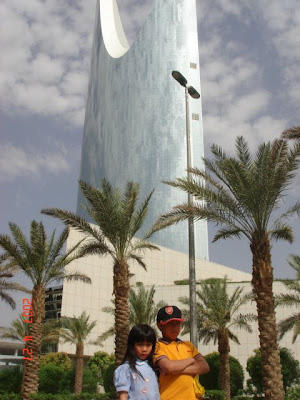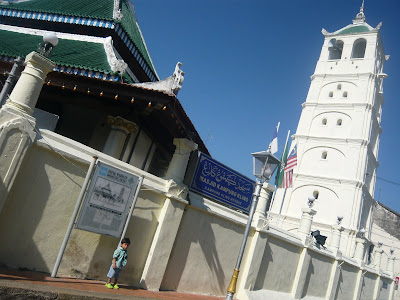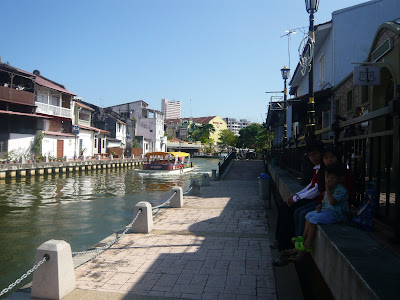
Saturday, January 30, 2010
Friday, January 22, 2010
Monday, January 4, 2010
Nov-Dec 2009 Holiday Chronicle - Romantic Melaka vs. Slick Singapore

The rise and fall, as the case may be, of Melaka (Malacca), Penang and Singapore as trading ports along the important trade route between India and China during the 15th to 19th century was partly attributable to the battle between two global companies; British East India Company (EIC) and the Dutch East India Company (Verenigde Oostindische Compagnie or VOC).
Of the three port towns, Melaka, founded at the start of the 15th century, had the head start and soon became the most prosperous entrepot in Southeast Asia. The Portuguese chronicler Tome Pires audaciously proclaimed “Whoever is lord of Malacca has his hand on the throat of Venice”. After the Portuguese seized Melaka in 1511, spice prices soared in Venice’s Rialto and Muslim merchants abandoned Melaka in favour of Aceh.
The establishment of VOC in 1602 with the objective of carrying out colonial activities in Asia led to the Dutch wrested Melaka from the Portuguese in 1641. However, the Dutch gradually marginalised Melaka in favour of Batavia (present-day Jakarta). With the opening of Penang as a free port in 1786 and the Dutch power ebbed away, Melaka slipped precipitously into obscurity. Following the collapse of VOC and Dutch defeat in the Napoleonic Wars in 1794, Melaka and other VOC possessions, including Batavia, were transferred to the British. When Melaka was temporarily under the British rule (1794-1818), Melaka’s inhabitants were encouraged to migrate to Penang. After the Napoleonic Wars ended, Melaka was returned to the Dutch, a move regarded as an anti-climax by a certain empire builder.
The decimation of Melaka as the foremost port “of such importance and profit that it ... has no equal in the world” was completed when Sir Stamford Raffles acquired Singapore in 1819 for the EIC in order to break the Dutch hold over trade in the Malay Archipelago. In 1824, Britain and the Netherlands signed the Anglo-Dutch Treaty of London whereby the Dutch gave up Melaka and their claims on Singapore and in return the British handed over Sumatra to the Dutch. The Treaty led to the establishment of the Straits Settlements, with Penang as its capital. By the early 1830s, Singapore had eclipsed Penang in terms of commerce, and became the new capital of the Straits Settlements.
On our way to the futuristic and slick city down south, we made a brief stopover in Melaka, a historical town with a glorious past. The UNESCO World Heritage City looks pretty amazing. We followed the heritage trails and stopped at a few architectural streetscapes and decorative shophouses for a closer look. In common with Penang and Singapore, Melaka’s Street of Harmony i.e. Jalan Tokong is ornamented with a fusion of houses of worship including an old mosque with pagoda-style minaret and pyramid-shaped roof in place of domes, not unlike the original Masjid Sultan in Kampong Glam.
We also tried the boat cruise along the not-so-murky Melaka River, and my parents felt a sense of deja vu when swamped before their eyes are lovely Dutch style buildings, well preserved Kampong Morten, immaculate Peranakan dwellings, palatial townhouses and delectable riverside cafes which somehow rekindled the old world charm of magical Amsterdam and Venice.
Sunday, January 3, 2010
Nov-Dec 2009 Holiday Chronicle - Songs of the Sea
Welcome to the New Year, and new start (ornamenting this blog with video clips that is). While in Singapore recently, we also had the opportunity to experience Singapore's multi-sensory extravaganza at the Sentosa Island. If you are still in celebratory mood, please click the following short video clips to view the moveable feast of flame bursts, water jets and laser lights.
May 2010 be better and more vibrant. Enjoy ...
TO BE CONTINUED ...

















